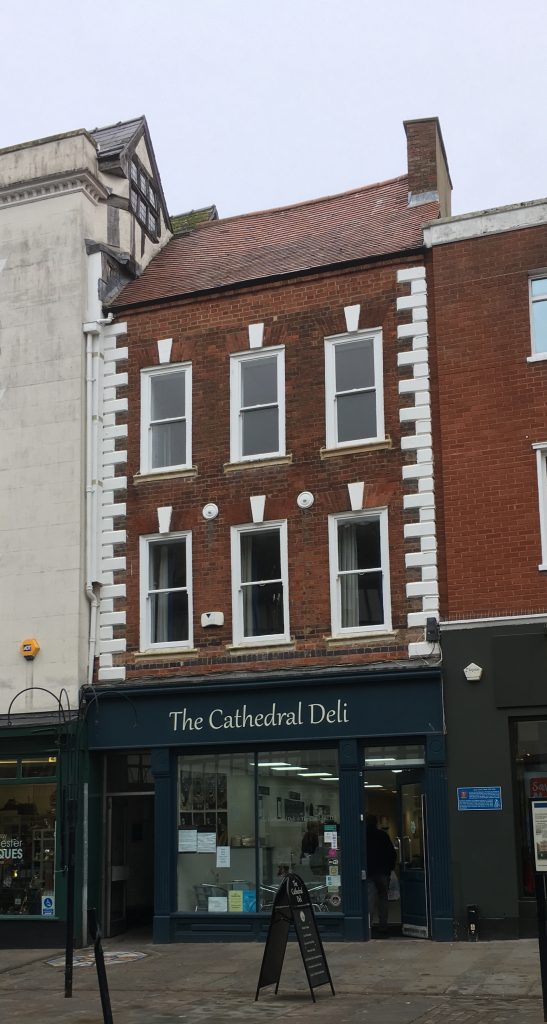The next owner of 24 Westgate Street was Richard Elly, described as a gentleman and an attorney. He was also a Freeman of the city of Gloucester from 1722 and a Proctor of the Consistory Court of the Diocese of Gloucester. He had a brother James, named after his father, and a sister Jane to whom he left a lifetime’s interest in the property in Saint Mary de Grace parish. Among other legacies, he left £200 to the Society for the Propagation of Christian Knowledge – he would no doubt have been delighted to know that, as the bookshop S.P.C.K, the society occupied the building in the 20th century, from 1949 to 1970.
Richard does not appear to have married so, in his will of 1755, he left much of his property, to his sister, Jane, including Paygrove Farm and lands in Little Normans. His executors were Thomas Branch, George Worrall (both at various times Aldermen of the city and Luke Hook, described as a writing master. Richard was buried in St Michael’s church.
Jane Elly married Joseph Punter, a mercer, in Gloucester Cathedral in 1736. Like her brother before her, Jane does not appear to have had any children – she was, in fact, in her late forties when she married. Her husband died in 1749 leaving Jane a widow for over twenty years.
In her will, in 1773, Jane left legacies amounting to over £1500 to friends and their children. She also gave £500 to a charity helping Gloucester Infirmary and the residue of her estate went to the Mayor and Burgesses of the city of Gloucester to invest, the interest being used every year to pay for as many poor local boys to be apprenticed to a trade as the funds would permit.
By the time Jane died, so had one of the executors, George Worrall so the other two were left to sell off the property to the next owner, Alderman John Webb.

